** Our bookshop in Berlin-Mitte has closed ** Orders available only via www.bomdiabooks.de **
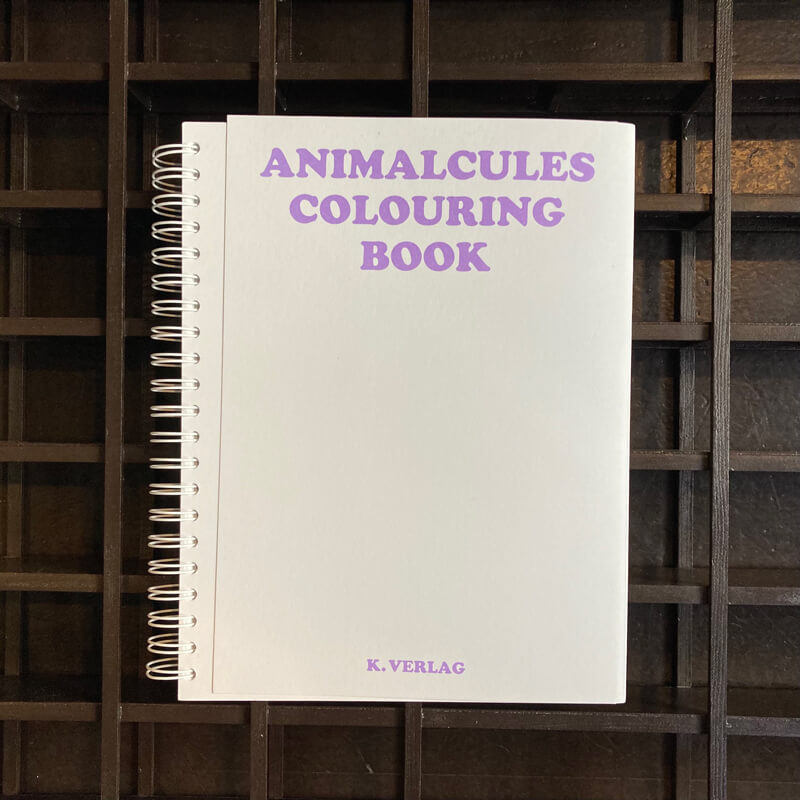
Let’s say a blank page is not actually blank. In fact, let’s say it is anything but blank. Devoid of colour, yet infinitely colourful; full of possibilities for multicoloured pens and literally covered by multitudinous life forms. It turns out that even the emptiest page is technically more than full – it’s alive. Do microbes respond to colour on paper? Can spontaneous doodles give rise to new species? Based on Antonie van Leeuwenhoek’s term for microorganisms, this age-fluid book considers a world where the smallest is suddenly in control of the largest. Its illustrations function as an exploration into morphological occurrences, rejecting the goal-oriented, the figurative and the categorical. Following a traditional format, these pages attempt to open up a creative bypass. To draw is to embrace mutational forms, and to colour in these pages is to understand that many possible forms may emerge as a bear or a bacterium. We are what we draw. Time then to let those animalcules express the possible colours of kingdoms to come. ↑ ↓ ↓
€19,00
SOLD OUT
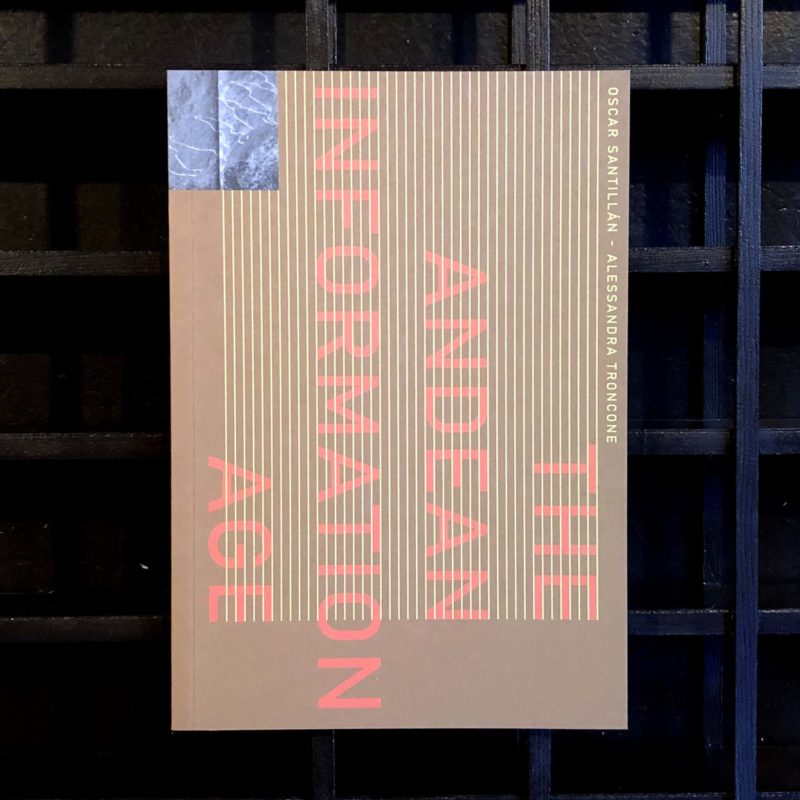
Over a thousand years ago a form of material code emerged among the Andes mountains. By means of knotted ropes, called ‘quipus’, numbers and words were enacted. This publication The Andean Information Age knots together a universe of stories related to the quipu system, the history of its ongoing decipherment, and the disruption that this sensorial code may be able to trigger in our present. ↑ ↓ ↓
€18,00
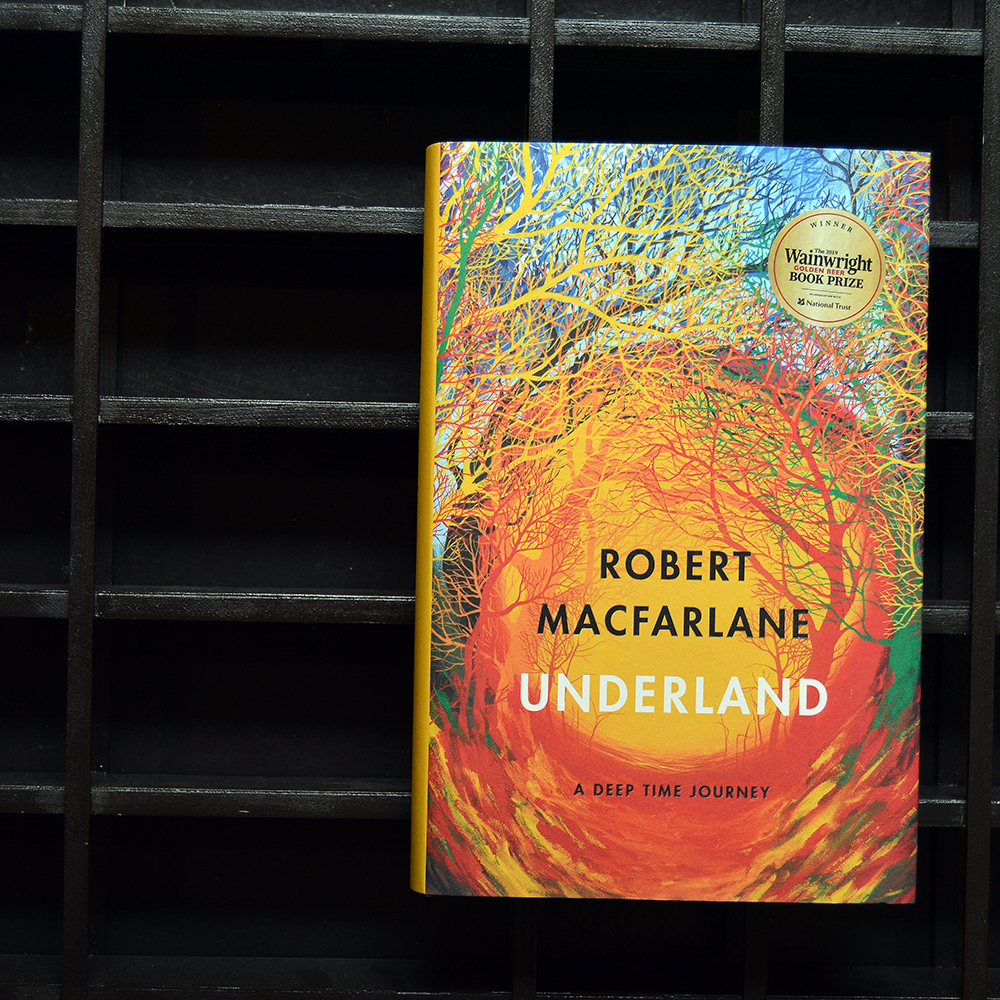
In Underland, Robert Macfarlane takes us on a journey into the worlds beneath our feet. From the ice-blue depths of Greenland's glaciers, to the underground networks by which trees communicate, from Bronze Age burial chambers to the rock art of remote Arctic sea-caves, this is a deep-time voyage into the planet's past and future. Global in its geography, gripping in its voice and haunting in its implications, Underland is a work of huge range and power, and a remarkable new chapter in Macfarlane's long-term exploration of landscape and the human heart. ↑ ↓ ↓
€26,90
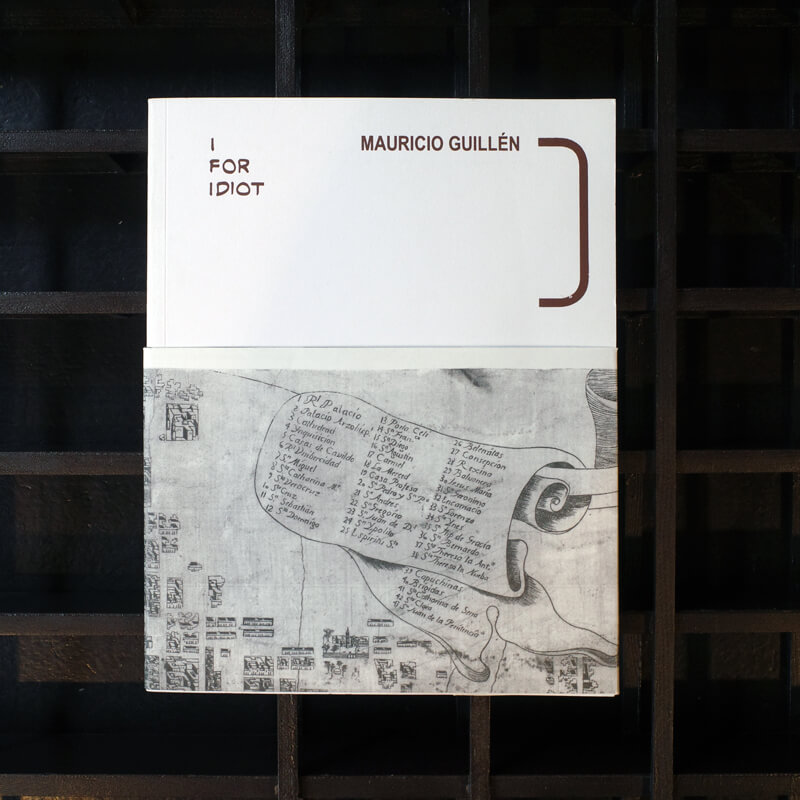
I For Idiot functions as an extension of the film Avenida Progreso in the sense that it assembles three different perspectives: a philosopher’s, an ethnologist’s and a film theorist’s, and juxtaposes these with some of the external layers of reality that have in one way or another informed the film. The purpose of this exercise, is to further consider the potential of dialectic time as a tool for collapsing linear narratives and analyzing the relation between speed, history and the distribution of knowledge in information based societies. The book was published on the occasion of the exhibition Avenida Progreso by Mauricio Gullién at the MMK Museum für Moderne Kunst, Zollamt, Frankfurt am Main (2012). ↑ ↓ ↓
€21,00
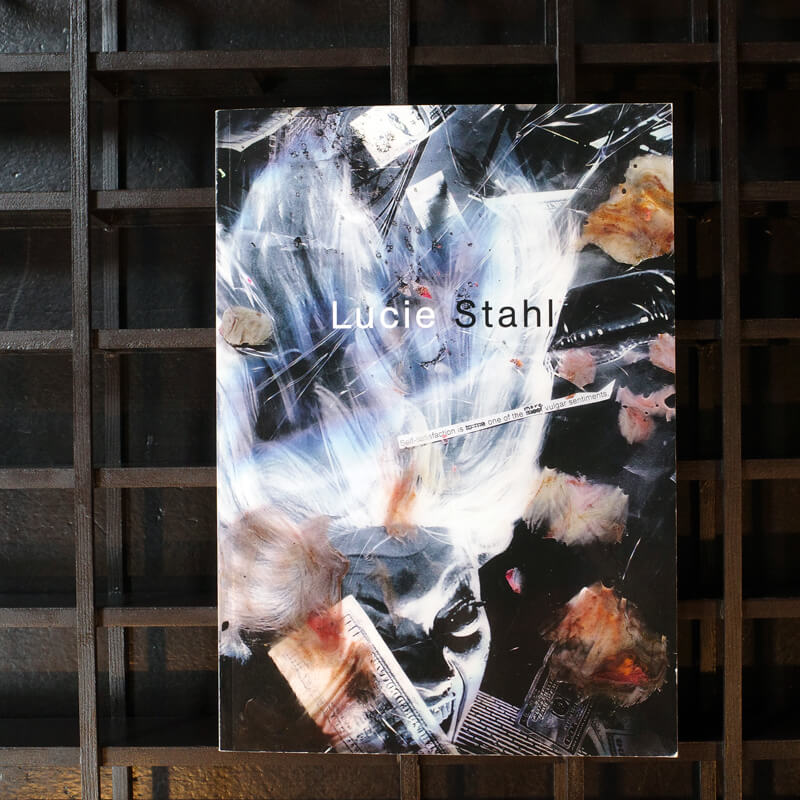
“Invited by Lucie Stahl to respond to her gorgeous and trashy collaged posters, I look back in my diary and am surprised by the number of parallels in our dreams and notations. I’ve never met Lucie Stahl but we live in the same world: oil spills, palm fronds, novelty key chains, sports beverages. Like me, she’s a self-appointed reporter. Stahl’s posters begin with her odd inclination to write down fragments of overheard conversations, ambient thoughts and fleeting anxieties that – once preserved (and obsessively so, under buckets of chemical gloss) function as video-grabs from the deluge of information that we understand, more or less, to comprise consciousness.” (Chris Kraus) ↑ ↓ ↓
€22,00